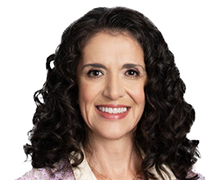No, you can’t always have it all but if you delegate and accept differences, you can have more of what you want
There are many inflection points in one’s career, but some of the toughest inflection points for me were transitioning from the person doing all of the work, to the person managing the work and the person bringing in the work. I was still trying to do it all because of the message I had received growing up of “women can have it all.” Unfortunately, I thought that meant I had to “do it all.”
Luckily, I had some fantastic mentors, one of whom stands out for the pearls of wisdom he was always dropping in both the large and the small moments — although this one came at a large moment — when I was trying to get out of the office for 3 months of maternity leave. I was the first female associate to have taken maternity leave (the maternity leave policy was put in place because of me), so I didn’t have any other women who had taken maternity leave to ask for advice. However, the firm had a sabbatical program for partners, so I turned to the most senior partner in the firm for advice. This male partner always took his sabbatical, and was well past the early parenting years—and he gave me the following piece of advice, which had an impact well beyond my maternity leave:
“If you want to succeed, you have to delegate. The person to whom you delegate will do it differently than you and that doesn’t mean it’s wrong.”
Mind. Blown.
In the short term, this enabled me to hand my work off to others and take my leave without undue stress. In the long term, however, the simple concept that “different isn’t wrong” freed me from so many self-imposed, legal industry-imposed, and society-imposed constraints. I was freed from the compulsive need to “do it all.” I was freed from the mindsets of the “Type A” personality and the mathematician, which dictate only one way to get to a correct result. I was freed from feeling that I had to shape my legal practice like (or even look like) the people that came before me. And I was freed from the notion that “having it all” is the end-all and be-all.
In addition, “different isn’t wrong” represents the nexus between my passion for diversity, equity and inclusion and my passion for intellectual property law. It is the threshold that must be crossed to make room for different views, experiences and solutions, both in society and in science. Hence, they have become my words to live by.







